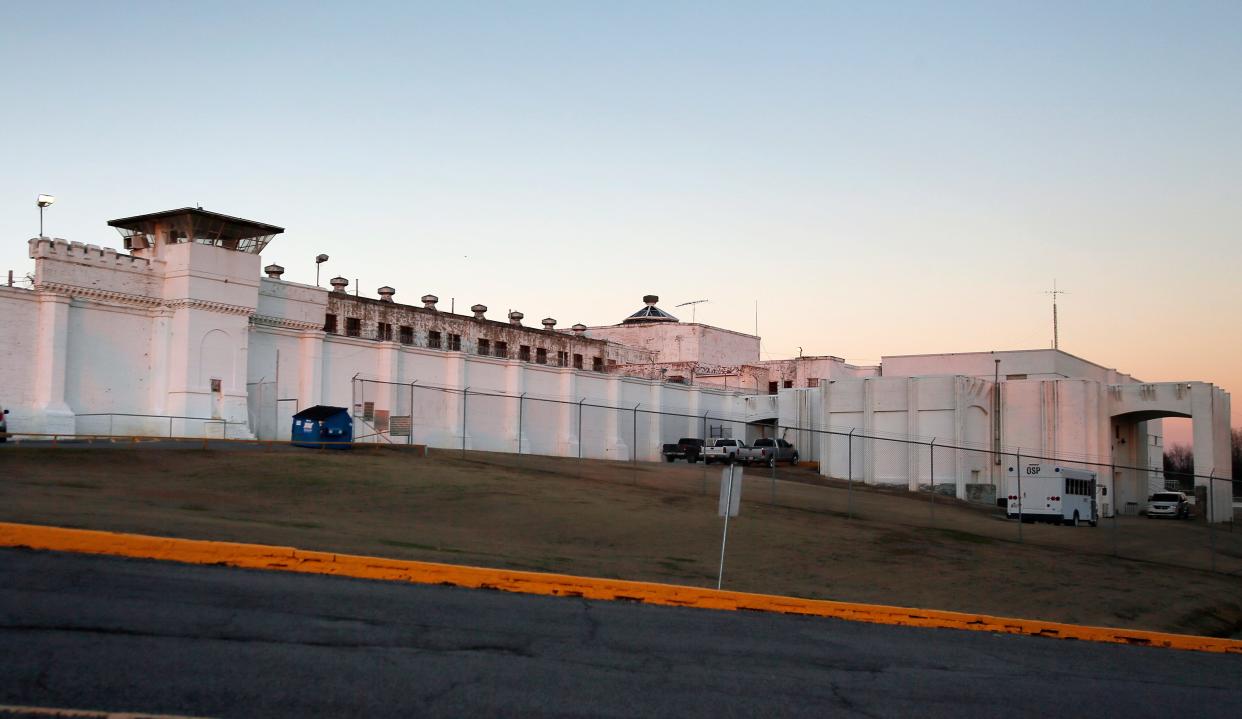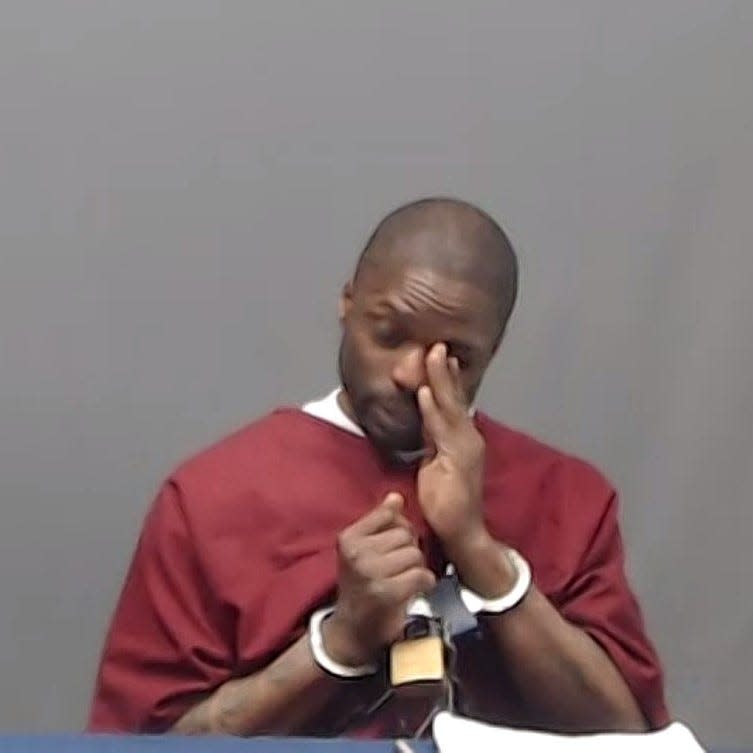Michael DeWayne Smith scheduled to be executed Thursday at Oklahoma State Penitentiary

Oklahoma is set to carry out the state's first execution of 2024 and the 12th since capital punishment resumed in 2021.
Death row inmate Michael DeWayne Smith faces execution by lethal injection Thursday at the Oklahoma State Penitentiary in McAlester for two 2002 murders. The execution is scheduled to begin at 10 a.m.
Smith, 41, will become the fourth inmate in the nation this year to be put to death if he doesn't get a last-minute stay. Alabama, Texas and Georgia already have carried out executions, according to a database kept by the Death Penalty Information Center.
The Oklahoma Court of Criminal Appeals on Wednesday denied for the fourth time his request for an emergency stay. Smith also was seeking an emergency stay at the U.S. Supreme Court.
Smith claims he is innocent even though he confessed to police. His attorneys also claim he is intellectually disabled.

"I don't want to die, man," he told The Oklahoman Monday in a phone interview. "Who can ever be prepared to die, man? I sure don't want to die for something I didn't do."
He said he was framed by the same people that framed fellow death row inmate Richard Glossip.
"I have the same exact issues as Mr. Glossip," Smith said. "But due to the fact that I'm affiliated (with a gang) and I'm Black ... my case hasn't been given the same look as Mr. Glossip's has."
Glossip, 61, has become the state's most high-profile death row inmate because of the wide support for his innocence claim. The U.S. Supreme Court in January agreed to hear his new complaints about his 2004 retrial after the state attorney general said he wanted the murder conviction overturned.
"They all want to be Rich Glossip because he's getting all the action," Smith's spiritual adviser, Jeff Hood, said.
The Oklahoma Pardon and Parole Board voted 4-1 March 6 to deny Smith clemency. That vote means Gov. Kevin Stitt cannot commute his sentence to life in prison without the possibility of parole.
Smith told the parole board he was hallucinating from drug use when he confessed to police. "I didn't commit these crimes. I didn't kill these people. I was high on drugs," he said.
What to know about Michael DeWayne Smith's case
Smith was convicted at trial of first-degree murder for two fatal shootings in Oklahoma City on Feb. 22, 2002. Jurors agreed he should be executed for both deaths.
The first victim, Janet Moore, 40, was shot once at her apartment. The second victim, Sharath Babu Pulluru, 24, was shot nine times at a convenience store then doused with lighter fluid and set on fire.
Neither was Smith's original target, according to testimony at the 2003 trial.
At the time, he was 19 and a member of a street gang in Oklahoma City known as the Oak Grove Posse. He also was high on PCP and hiding from police, who had a warrant for his arrest on a 2001 murder case.
In the first shooting, Smith actually was looking for Moore's son, Phillip Zachary, because he mistakenly thought Zachary was a police informant, prosecutors said.
"It's her fault she died," Smith told police. "She panicked and she got shot. ... She like, 'Help! Help!' I'm like, I had to. I had no choice."
Smith next went to the A&Z Food Mart to shoot a worker over comments to the newspaper about a robbery at another food mart next door, prosecutors said. He instead killed Pulluru, who was filling in at the store for a friend.
A clerk at the Trans Food Mart had killed a fellow gang member during a robbery on Nov. 8, 2000. A worker at the A&Z Food Mart had told The Oklahoman in 2000 he was proud of his neighbor.
"The rest of the kids will learn a lesson by him being dead and stop doing these things," the A&Z Food Mart worker had said.
The shootings in 2002 came days before a trial for two other gang members involved in the robbery was set to begin. Smith confessed to his roommate and a neighbor before his arrest, according to their testimony at his trial.
Smith was convicted at a separate trial of second-degree murder for the fatal shooting of Otis Payne outside an Oklahoma City club on Nov. 24, 2001. He had admitted to police that he handed the gun to the shooter, David Burns. He was sentenced to life in prison for that crime.
Oklahoma's execution pace has slowed
Oklahoma resumed executions in late October 2021 after a hiatus of more than six years. By mid-2022, four had taken place, and 25 more were scheduled through the end of 2024.
The schedule proved to be too ambitious. Some inmates got stays, and the Oklahoma Department of Corrections had to be given more time between executions to reduce the stress on staff.
The last execution was in November. One scheduled for Feb. 1 was called off because the inmate, James Chandler Ryder, has mental health issues. The next one is set for June 6 but may be called off because the inmate, Wade Lay, also has mental health issues.
The Oklahoma Court of Criminal Appeals was asked in January for even more time, 90-day intervals, once the next two executions are carried out.
"The present pace of executions, every 60 days, is too onerous and not sustainable," said Steven Harpe, the executive director of the Oklahoma Department of Corrections.
This article originally appeared on Oklahoman: Execution of Oklahoma death row inmate Michael Smith set for Thursday

